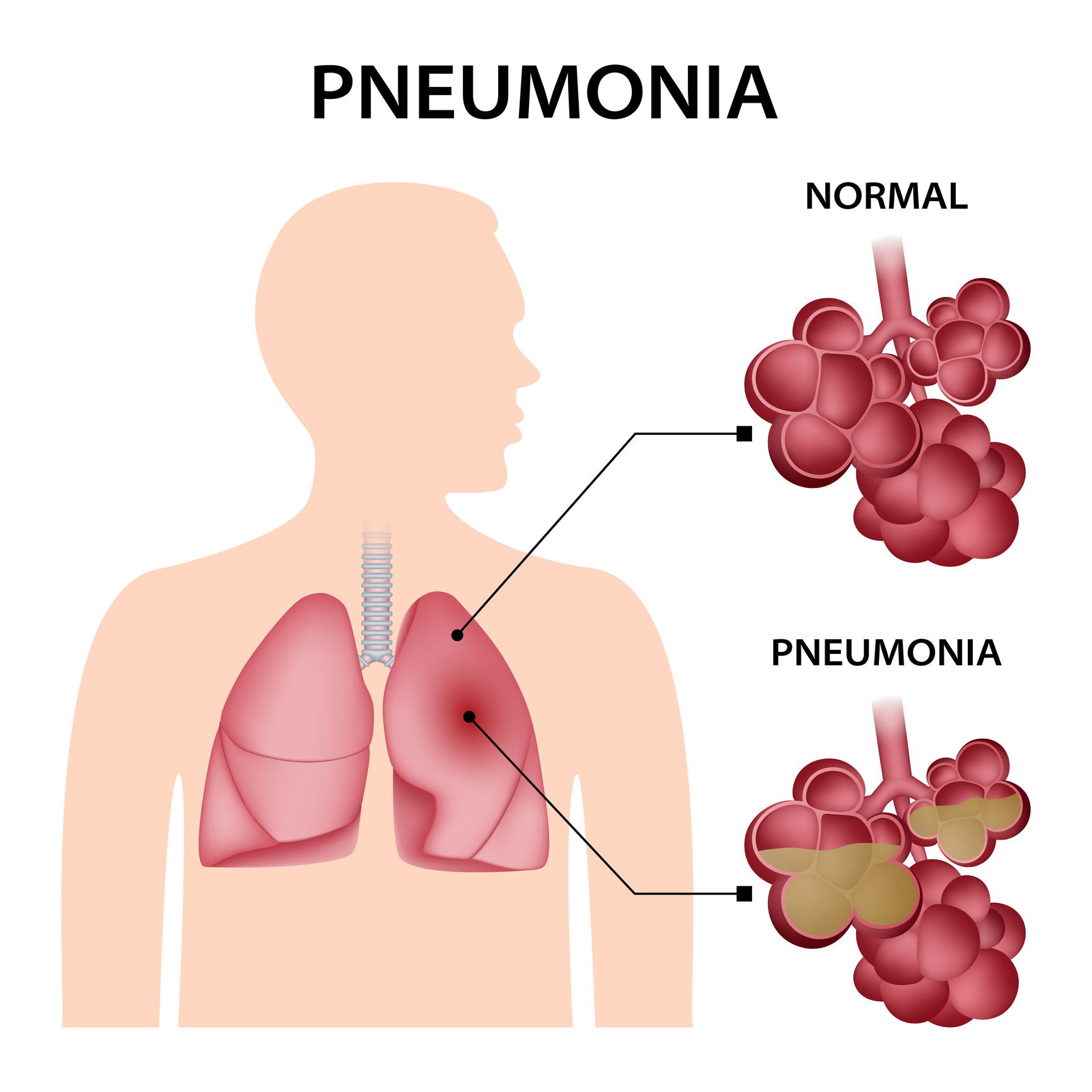
- 0203 903 7866
The Portland Hospital for Women and Children,
205-209 Great Portland Street, London W1W 5AH - Request Appointment
 GP Referral
GP Referral

Pneumonia isn’t always serious, but it can cause severe complications for some children so it’s important to be able to recognise the symptoms. The sooner that you can spot the signs of pneumonia, the better. It’s important to be able to recognise the early symptoms so that you can seek help before your child’s condition gets worse.

Pneumonia is another term for a lung infection. It can be caused by different types of infection, including both viruses and bacteria. Children often develop pneumonia as a secondary infection, which means that it happens when their immune systems are already fighting another infection. For example, your child might have a cold or the flu before they develop pneumonia. It’s important to be able to recognise the signs that this is happening so that you can see a doctor.
The symptoms of pneumonia can appear quickly (usually when the infection is bacterial) or develop more slowly (usually with viral infections). Signs that your child might be developing pneumonia include:
However, pneumonia doesn’t always cause the same symptoms for every child. While most children will experience a fever, cough and some breathing symptoms, others might not complain of the same effects. It can be particularly tricky to spot the signs of pneumonia in very young children as they aren’t able to tell you what they’re feeling.
The early signs of pneumonia will usually last for a week or two. You may notice new or worsening symptoms as the infection progresses, but your child should start to improve within about a week. Some of the symptoms may last a bit longer. For example, children may still have a cough for up to six weeks. It’s also common for children to still feel a bit tired or to lack energy for a couple of weeks after the other symptoms have gone.
If you notice any signs of pneumonia, then it is a good idea to consult a doctor. Although pneumonia can often be treated at home in the same way as the flu, it is best to have your child checked. The doctor will be able to confirm the diagnosis of pneumonia and advise you on the best way to care for your child. If the infection is bacterial then you may also be prescribed antibiotics to help clear it up.
Pneumonia can sometimes cause more severe symptoms or complications. If your child’s fever is very high, they are unresponsive, or having difficulty breathing, then you should go to the nearest A&E right away. Your child might need help breathing or other treatments to relieve their symptoms.